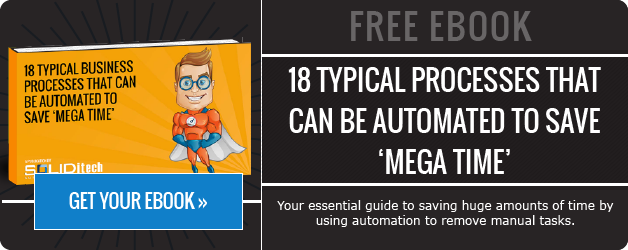A recent study by PMG found that "while automation enhances customer experiences [and] increases productivity, speed demands are stressing IT's abilities and resources, putting business benefits at risk".
But why?Amongst other benefits, businesses leveraging automation are, according to the study, reported to be enjoying:
- Enhanced customer experience (61%)
- Increasing productivity gains (59%)
- Sharing knowledge (52%)
- Delivering new products (46%)
The study goes on to explain the 'benefit risk' as a result of the pressure increased speed-of-business is placing on IT departments.
In a nutshell, the answer lies in culture.
Company culture should be designed to motivate your team to succeed. It directly (and indirectly) determines a number of factors within your organisation. For example, if you value innovation, then support mechanisms and operational flows are in place to encourage that innovation. If value other characteristics, your organisation will be structured to foster those.
The bottom line: If a change in technology places enough pressure on one department such that they, or the technology, might fail - you probably need to review your company culture.
A recent slide deck titled "How Google Works" by Eric Schmidt and Jonathan Rosenberg of Google, details their personal journey to 'business enlightenment'. They present that running a successful business in today's technological age requires a different way of thinking.
Your culture should support 'smart creatives'
Schmidt and Rosenberg define the idea of 'smart creatives'. These are individuals within your business "who combine technical knowledge, business expertise and creativity". They explain that when you give these people today’s technology, and then, most importantly, give them space to work their magic, they can do "amazing things, amazingly fast".
However, giving the right people in your business the space they need to truly innovate is one of today's biggest cultural challenges. According to Schmidt & Rosenberg, "most companies today are run to minimize risk, not maximise freedom and speed".
A good example of cultural corporate empowerment is Virgin, who is has recently announced a policy of unlimited leave (vacation) time. Virgin believes that by empowering employees to make their own adult, responsible decisions, the business will benefit from more independent, innovative and happier employees.
Typically, traditional businesses are slow and have rigid, old-fashioned cultural hierarchies. That's why new, agile startups, with little cultural 'history', who leverage the flexibility offered by technology, are wiping the floor with incumbent providers (Uber anyone?). They are not bogged down by years of siloed structure and linear thinking.
The 'smart creatives' in your business are the ones who see the opportunities offered by automation, and use them. However, they are being forced to operate in an old-fashioned and inflexible structure without the benefit of an innovation-encouraging culture. As attested to by 59% of respondents to the PMG study; "My organization does not have a holistic approach, and ad hoc automation done in silos creates points of incompatibility".
This means your business is not enjoying the full, and extended, range of automation benefits on offer.
Conclusion
By understanding that the success of your business is dependant on everyone within it, rather than just the traditional 'leaders', and by actively engaging in a culture that supports the innovative thinking required to reap the full value of automation - you will achieve automation success.
It is the success of your culture that will define the success of your automation strategy. For more information about automation, read "Everything You Need To Know About Business Process Automation".








Comment